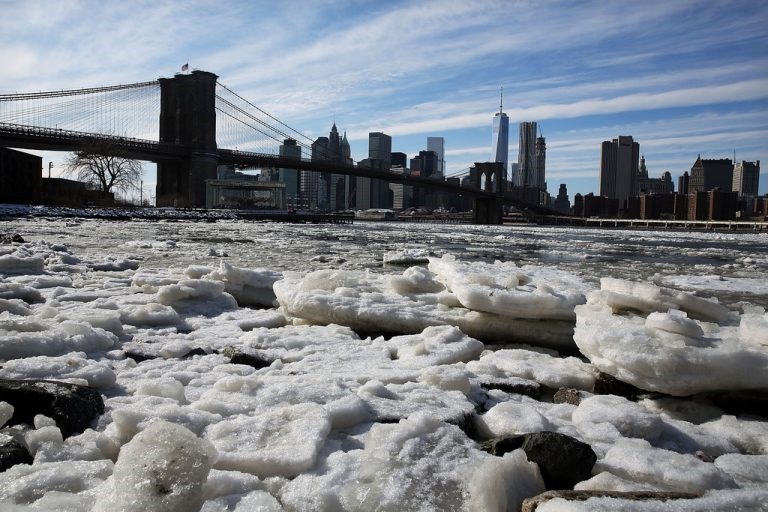New Yorkers are encouraged to take serious precautions during the upcoming extreme cold weather front to avoid health problems such as hypothermia, frostbites or the worsening of existing health conditions

With "temperatures forecast to stay 10 to 15 degrees below normal through the weekend," the New York City Emergency Management Department is urging New Yorkers to prepare for the extreme winter weather.
Throughout the week, daytime temperatures will generally reach into the teens to mid-20s, while lows will drop into the single digits and teens. Single digit wind chills are expected during the overnight hours through the weekend.
Cold weather can cause or worsen health problems. Certain individuals, including the unsheltered homeless, people with disabilities and those with access and functional needs are at an increased risk for injuries, illness or death. Others at an increased risk also include people who drink heavily or use drugs and become incapacitated outdoors or those who live in homes without heat, and:
- Are 65 years of age or older.
- Are infants.
- Have certain medical conditions such as heart or lung disease, high blood pressure, diabetes.
- Have serious mental health conditions or developmental disabilities.
- Have disabilities or access and functional needs (e.g. limited mobility, trouble leaving home).
New Yorkers are generally encouraged to take the following precautions during extreme cold:
- Stay indoors as much as possible.
- If you have to go outdoors, wear dry, warm clothing and cover exposed skin. Keep fingertips, earlobes, and noses covered. Wear a hat, hood, scarf, and gloves.
- Shivering is an important first sign that the body is losing heat. Shivering is a signal to return indoors.
- Be safe at work. Workers who spend a lot of time outdoors are at risk for cold-related health impacts. If you are an employer, implement safe work practices, provide appropriate protective equipment, and train workers on how to stay safe during cold and winter weather.
- Limit alcohol intake. Drinking alcohol may make you feel warmer but it causes your body to lose heat faster. Alcohol also impairs your judgment which limits your ability to take appropriate precautions or remove yourself from a dangerously cold environment in time. As a result, alcohol actually increases your chances of hypothermia and frostbite.
Prolonged exposure to cold can lead to hypothermia, frostbite, and can worsen existing medical conditions such as heart and lung diseases.
Hypothermia occurs when the body temperature drops to a dangerously low level and it can lead to death. Symptoms include intense shivering, dizziness, trouble speaking, lack of coordination, sluggishness, drowsiness, confusion, shallow breathing.
Frostbite occurs when parts of the body freeze, such as finger, toes, ears, nose and cheeks. It can cause permanent damage. Symptoms include red, pale or painful skin, unusually firm or waxy skin and numbness.
Call 911 and follow instructions, or go to the emergency room if you see symptoms of hypothermia or frostbite.
For more information, visit nyc.gov/emergencymanagement. Stay warm. Be Safe. Take of yourself and each other.



